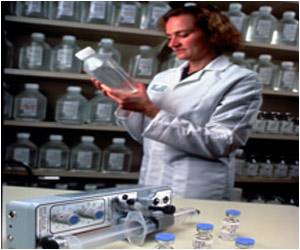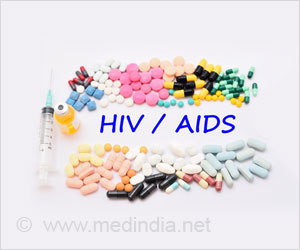The challenge for HIV vaccine developers is to determine if an immunogen can present a particular viral surface in a way that distinct B cells can be activated.

‘Vaccine strategy involves immunizing people with a series of different engineered HIV proteins as immunogens to teach the immune system to produce broadly neutralizing antibodies against HIV.’





A research team has now found that the right precursor ("germline") cells for one kind of HIV broadly neutralizing antibody are present in most people, and has described the design of an HIV vaccine germline-targeting immunogen capable of binding those B cells. The findings by scientists from The Scripps Research Institute (TSRI), the International AIDS Vaccine Initiative (IAVI) and the La Jolla Institute for Allergy and Immunology were published in Science on March 25. "We found that almost everybody has these broadly neutralizing antibody precursors, and that a precisely engineered protein can bind to these cells that have potential to develop into HIV broadly neutralizing antibody-producing cells, even in the presence of competition from other immune cells," said the study's lead author, William Schief, TSRI Professor and Director, Vaccine Design of the IAVI Neutralizing Antibody Center at TSRI, in whose lab the engineered HIV vaccine protein was developed.
The body's immune system contains a large pool of different precursor B cells so it can respond to a wide variety of pathogens. But that also means that precursor B cells able to recognize a specific feature on a virus surface are exceedingly rare within the total pool of B cells.
"The challenge for vaccine developers is to determine if an immunogen can present a particular viral surface in a way that distinct B cells can be activated, proliferate and be useful," said study co-author Shane Crotty, professor at the La Jolla Institute. "Using a new technique, we were able to show-well in advance of clinical trials-that most humans actually have the right B cells that will bind to this vaccine candidate. It is remarkable that protein design can be so specific as to 'find' one in a million cells, demonstrating the feasibility of this new vaccine strategy."
The work offers encouraging insights for a planned Phase 1 clinical trial to test a nanoparticle version of the engineered HIV vaccine protein, the "eOD-GT8 60mer." "The goal of the clinical study will be to test safety and the ability of this engineered protein to elicit the desired immune response in humans that would look like the start of broadly neutralizing antibody development," Schief said. "Data from this new study was also important for designing the clinical trial, including the size and the methods of analysis."
Advertisement
The new work also provides a method for researchers to assess whether other new vaccine proteins can bind their intended precursor B cells. This method is a valuable tool in the design of more targeted and effective vaccines against AIDS, providing the ability to vet germline-targeting immunogens before testing them in large, time-consuming and costly clinical trials.
Other contributors to the paper, "HIV-1 broadly neutralizing antibody precursor B cells revealed by germline-targeting immunogen," included Joseph Jardine, Daniel Kulp, Colin Havenar-Daughton, Anita Sarkar, Bryan Briney, Devin Sok, Fabian Sesterhenn, June Ereno-Orbea, Oleksandr Kalyuzhniy, Isaiah Deresa, Xiaozhen Hu, Skye Spencer, Meaghan Jones, Erik Georgeson, Jumiko Adachi, Michael Kubitz, Allan decamp, Jean-Philippe Julien, Ian Wilson and Dennis Burton.
Source-Newswise















